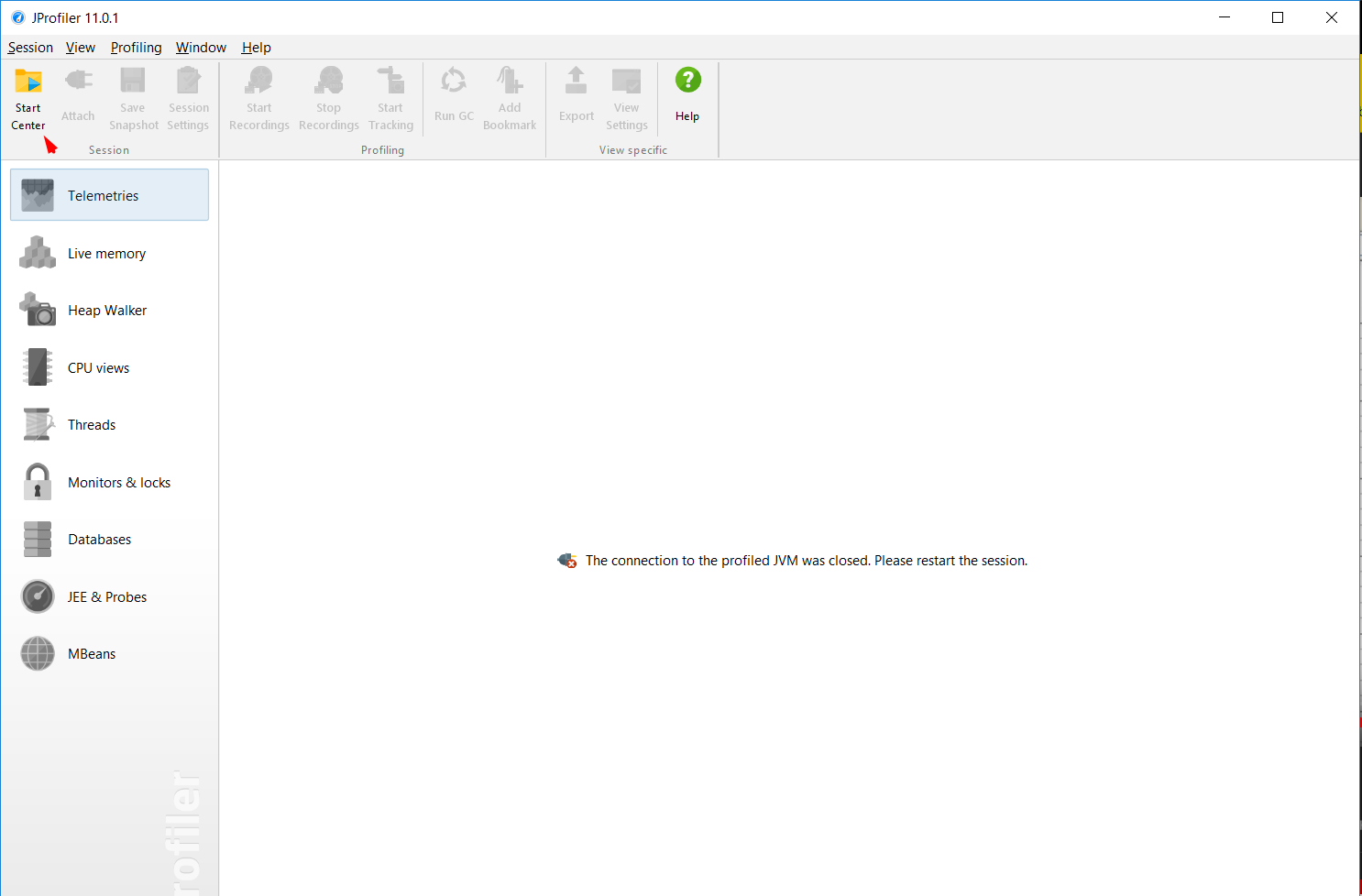
In some cases it may be difficult to get stack samples when you want them, during the time of actual slowness. (You should ignore other things it tries to tell you about, like call graphs, recursion, and self-time.) There are very few profilers that meet this specification, but one is RotateRight/Zoom, but I'm not sure if it works with Java, and there may be others.
Jprofiler memory leak tutorial code#
To get percent of time, it should tell you, for each line of code that appears on any sample, the percent of samples containing that line, because if you could make that line go away, you would save that percent. Another way is to use a particular type of profiler, one that samples the entire call stack, on wall-clock time (not CPU unless you want to be blind to I/O), when you want it to sample (for example, not when waiting for user input), and summarizes at the level of lines of code, not just at the level of functions, and percent of time, not absolute time. In the case of Java, here is one low-tech but highly effective way to do that, or you can use the "pause" button in Eclipse. (Notice that the speed of taking such a snapshot doesn't matter, because you're not asking about time, you're asking what the program is doing and why.) The difference is that you are not asking how much you are asking what and why. If you do this multiple times and you see something that it is trying to do at multiple times, then that activity is something that you could fruitfully optimize. It is based on the idea that, during a time when the program is taking longer (in wall-clock time) than you would like, you want to know what it is doing, predominantly, and one way to find out is to stop it and ask, or take a snapshot of its state and analyze it to understand completely what it is doing and why it is doing it at that particular point in time. General expectation with profilers is that if you can fix enough things to get a 10% or 20% speedup, that's pretty good, and I never hear stories of profilers being used repeatedly to get speedups of much more than that.Īnother approach is not to measure, but to capture. If the I/O is something that you expect, that may be fine, but it may be doing some I/O that you don't know about, and then you are back to detective work. This can be caused by the program being I/O bound. For example, an application may appear to be slow but the function times may be all reported as near zero. This approach can find a lot of problems, but it depends on you being a good detective and being able to think clearly about different kinds of time, like wall-clock time versus CPU time, and self-time versus inclusive time. Do not expect function times to add up to total time, because functions call each other, and the reason function A may take a lot of time is that it calls function B that also takes a lot of time. But if it takes a lot of time, then you have to do detective work to figure out what part of the function is responsible for the time. Clearly, if a function takes very little time, then speeding it up will gain you little. That is, you try to see how long each function takes and/or how many times it is called. The more popular one is that you proceed by getting measurements.
Jprofiler memory leak tutorial how to#
In this tutorial, we'll see what the potential causes of memory leaks are, how to recognize them at runtime, and how to deal with them in our application.Profiling is a subject having more than one school of thought. Memory leaks are a genuine problem in Java. There still might be situations where the application generates a substantial number of superfluous objects, thus depleting crucial memory resources, sometimes resulting in the whole application's failure. The GC is pretty smart, but not flawless. Memory leaks can still sneak up even in applications of a conscientious developer. While the GC effectively handles a good portion of memory, it doesn't guarantee a foolproof solution to memory leaking. The GC implicitly takes care of allocating and freeing up memory and thus is capable of handling the majority of the memory leak issues.



One of the core benefits of Java is the automated memory management with the help of the built-in Garbage Collector (or GC for short). If you have a few years of experience in the Java ecosystem, and you're interested in sharing that experience with the community (and getting paid for your work of course), have a look at the "Write for Us" page.


 0 kommentar(er)
0 kommentar(er)
